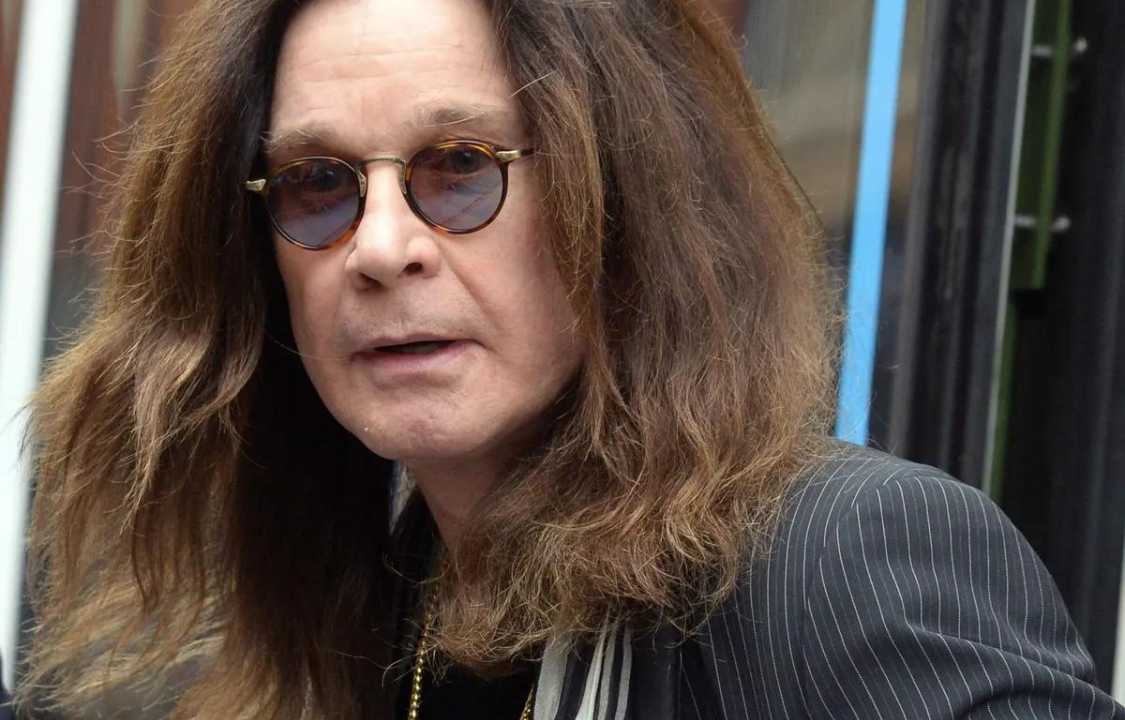The musician opened up about how the diagnosis has affected his lifestyle on ‘Good Morning America’.
Ozzy Osbourne, the legendary rock musician, has courageously shared the details of his ongoing health struggles, revealing that he received a diagnosis of Parkinson’s Disease in February 2019. During a heartfelt and candid interview with Robin Roberts on Good Morning America, Ozzy, accompanied by his wife Sharon and two of their three children, Kelly and Jack, offered a glimpse into their family’s experiences and the myriad challenges they’ve faced throughout this challenging period.
At the age of 71, Ozzy Osbourne began by reflecting on the past year, a year he described as “terribly challenging” for his entire family. He recounted that his last performance was on New Year’s Eve at The Forum, an event marked by the beginning of a tumultuous journey. Soon after, a significant fall led to neck surgery, a procedure that had unintended consequences on his nerves, setting off a chain reaction of health issues.
In the wake of these trying events, Ozzy received a diagnosis that would further test his resilience—Parkinson’s disease. This complex neurological disorder is characterized by a range of debilitating symptoms, including tremors, stiffness, and difficulties with movement, balance, and coordination. According to the National Institute on Aging, while Parkinson’s disease can severely impact one’s quality of life, it is not a death sentence.
Sharon Osbourne, in a moment of clarification, shed light on Ozzy’s specific diagnosis, a genetic mutation known as PRKN2, which can lead to Parkinson’s disease. She emphasized that PRKN2 is treated similarly to the standard approach for Parkinson’s disease, providing insight into the medical complexities of his condition.
For Ozzy, the decision to reveal his diagnosis was born out of a desire to be transparent; he humorously noted that he’s “no good with secrets.” He expressed that he couldn’t continue to keep this life-altering news to himself any longer, stating, “I cannot walk around with it anymore ’cause it’s like I’m running out of excuses, you know?” His treatment regimen involves Parkinson’s medication and nerve pills, which have offered some relief. However, the mental and emotional acceptance of his condition remains an ongoing challenge.
Ozzy’s work ethic and unwavering commitment to his career have made it difficult for him to come to terms with the fact that he can no longer contribute to his family in the same way he used to. He shared his inner struggle, saying, “Coming from a working-class background, I hate to let people down. I hate to not do my job. And so when I see my wife goin’ to work, my kids goin’ to work, everybody’s doing—tryin’ to be helpful to me, that gets me down because I can’t contribute to my family, you know.”
In addition to his emotional turmoil, Ozzy has been grappling with physical discomfort. He’s experienced numbness in his arm and persistent cold sensations in his legs, symptoms he attributes to the nerve damage resulting from his neck surgery.
Fortunately, Ozzy Osbourne’s family has been a tremendous source of unwavering support throughout this challenging period. Kelly Osbourne, his daughter, shared that she’s been on a mission to make her father smile and has discovered that spending time in the studio brings him joy. Jack Osbourne, who battles multiple sclerosis, empathizes with his father’s struggles, having faced his own health challenges and understanding the complex emotions that accompany an unexpected health diagnosis.
The next step in Ozzy’s treatment plan involves consulting with a specialist in Switzerland in April. This expert specializes in optimizing the immune system’s function, offering a glimmer of hope and potential solutions beyond what’s readily available in their home country.
Despite the formidable hardships he has encountered on his arduous journey, Ozzy Osbourne remains unwaveringly determined to reclaim his rightful place in the world of music. Drawing profound inspiration from his devoted and resilient fan base, he expressed his deep and heartfelt appreciation for their unwavering support, emphasizing that they are, in essence, his lifeline, the very oxygen that keeps him going. With genuine emotion, he shared, “They’re my air, you know. I feel better knowing that I’ve owned up to the fact that I have a case of Parkinson’s. And I just hope they hang on and remain there for me because I need them now more than ever.”
Sharon Osbourne, Ozzy’s steadfast partner in life, echoed her husband’s sentiments with unshakable conviction. She passionately expressed her unwavering belief that Ozzy will ultimately triumph over his health challenges and return to doing what he loves most: creating music that resonates with the souls of his devoted followers. With a resolute tone, she affirmed, “He’s gonna get back out there. And he’s gonna do what he loves to do; I know it in the very core of my being.” Their enduring love and belief in one another serve as a testament to the boundless strength of human determination and the unwavering power of music to heal and unite.
Ozzy Osbourne’s remarkable journey with Parkinson’s disease serves as a profound source of inspiration and a testament to the indomitable human spirit. It underscores the profound significance of resilience, the unyielding power of unwavering family support, and the invaluable lessons learned from confronting life’s formidable challenges head-on. His enduring commitment to his artistry and his unwavering devotion to his dedicated fan base are a resounding reminder of the remarkable strength that can be unearthed when one confronts adversity with unwavering determination and unshakable courage. Ozzy Osbourne’s enduring legacy is a beacon of hope and a symbol of triumph in the face of adversity, showcasing the incredible heights that can be reached through unwavering perseverance and an unwavering passion for life.

